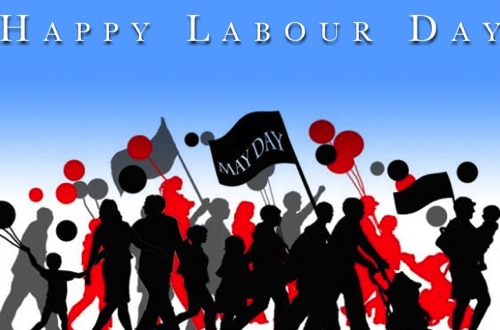Labour Day, observed annually on May 1st, stands as a testament to the resilience, solidarity, and achievements of the global workforce. It is a day that transcends borders and cultures, commemorating the struggles and triumphs of workers throughout history. From its humble origins rooted in the labor movement of the late 19th century to its widespread observance across continents today, Labour Day holds a profound significance in our collective consciousness.
This article aims to delve into the intricate tapestry of Labour Day’s history, unraveling its evolution, cultural significance, and enduring relevance in the modern era. By examining the origins of Labour Day, tracing its journey of international recognition, and exploring the diverse traditions of its observance, we seek to gain a deeper understanding of the profound impact of this commemorative day.
As we embark on this exploration, we invite you to join us in honoring the legacy of Labour Day and reflecting on the invaluable contributions of workers worldwide. Through our journey, we will uncover the rich history and timeless principles that continue to shape Labour Day into a symbol of unity, empowerment, and social justice.
The Haymarket Affair
Labour Day traces its roots back to the late 19th century, amidst the fervent labor activism in the United States. The catalyst for this commemoration can be found in the Haymarket Affair of 1886, where laborers gathered in Chicago’s Haymarket Square to protest for an eight-hour workday. The peaceful demonstration turned tragic when a bomb was detonated, leading to casualties and arrests. This event ignited widespread outrage and galvanized the labor movement, laying the groundwork for Labour Day.
International Recognition
Labour Day soon garnered international recognition, spreading across continents as a symbol of worker solidarity and rights. In 1889, the International Socialist Conference declared May 1st as International Workers’ Day to honor the Haymarket martyrs and advocate for labor rights worldwide. Today, Labour Day is observed in various forms in countries worldwide, with parades, rallies, and demonstrations serving as poignant reminders of the ongoing struggle for workers’ rights.
Significance of May 1st
A Day of Solidarity
May 1st serves as a day of solidarity, uniting workers from diverse backgrounds in their pursuit of fair labor practices and social justice. It serves as a platform to amplify the voices of workers, advocating for better wages, working conditions, and recognition of their invaluable contributions to society. Beyond its historical roots, Labour Day embodies the spirit of collective action and resilience in the face of adversity.
Global Observance
Diverse Traditions, Shared Purpose
While Labour Day may have different manifestations across the globe, its essence remains consistent – a celebration of the labor movement’s triumphs and ongoing struggle. From the colorful parades in the United States to the vibrant May Day demonstrations in Europe, each nation brings its unique cultural flair to the commemoration, reinforcing the universal principles of solidarity and empowerment.
Conclusion
Labour Day serves as a poignant reminder of the ongoing struggle for workers’ rights and social justice, echoing the sentiments of solidarity, empowerment, and collective action. As we draw this exploration to a close, it is imperative to reflect on the enduring legacy of Labour Day and its relevance in today’s world.
In commemorating Labour Day, we pay homage to the countless individuals who have dedicated their lives to advocating for fair labor practices, equitable treatment, and dignified working conditions. From the labor activists of the past who bravely fought for an eight-hour workday to the modern-day advocates championing the rights of marginalized workers, Labour Day embodies the spirit of resilience and determination in the face of adversity.
Moreover, Labour Day serves as a catalyst for social change, sparking conversations and actions aimed at addressing systemic inequalities and injustices within our societies. It provides a platform for amplifying the voices of workers, advocating for policies that promote economic justice, and fostering inclusive workplaces where every individual is valued and respected.
FAQs
What is the significance of Labour Day?
Labou’r Day commemorates the contributions and achievements of the labor movement, advocating for fair labor practices and social justice.
Why is Labour Day celebrated on May 1st?
Labou’r Day is celebrated on May 1st to honor the Haymarket Affair of 1886, which sparked widespread labor activism and calls for an eight-hour workday.
How is Labour Day observed globally?
Labou’r Day is observed globally through various activities such as parades, rallies, and demonstrations, highlighting the ongoing struggle for workers’ rights and social justice.
What is the difference between Labour Day and International Workers’ Day?
Labou’r Day and International Workers’ Day both commemorate the labor movement but may have different historical contexts and cultural traditions in various regions.
How can individuals support the goals of Labour Day?
Individuals can support the goals of Labou’r Day by advocating for fair labor practices, participating in community events, and standing in solidarity with workers’ rights movements.







